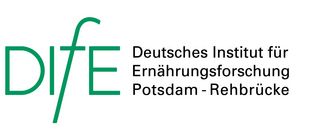The topic of nutrition is increasingly becoming the focus of public interest and plays a major role in the development of obesity and other diseases, especially in an aging society. Therefore, DIfE‘s research work is of great societal relevance both at present and in the future. By means of its experimental and applied basic research in the field of nutrition and health, the institute seeks to develop new strategies for the prevention of nutrition-related diseases. The Leibniz Senate attests in its statement that DIfE has successfully implemented the first steps of a longer reorientation process. Professor Tilman Grune, who has been the scientific director of DIfE since 2014, has strategically developed the research program and the three research focus areas in recent years despite the generational change in scientific and administrative management positions, and he has especially strengthened research on age-related and neuroscience topics through new appointments of highly qualified scientists.
Convincing scientific performance
According to the Senate, the scientific departments of DIfE, which on average were rated "very good", have presented remarkable work results since the last evaluation in 2012, which have been very well communicated to the respective scientific community and the general public. The institute is extremely well networked both nationally and internationally in the field of nutrition research and has been able to further increase its publication and third-party performance. The Senate welcomes the fact that DIfE has significantly expanded its participation in extensive cohort, observation and intervention studies in humans and is thus contributing its expertise in the research of nutrition-relevant issues. The evaluation committee also praised the very good supervision and support of young scientists in qualified doctoral and postdoctoral programs.
Together into the future
In the future, further appointments are planned together with the University of Potsdam, Charité - Universitätsmedizin Berlin and the Faculty of Health Sciences Brandenburg. "The process of reorientation is strengthened not least due to the continuous further development of the Potsdam-Rehbrücke research campus. Currently we are constructing a new research building, which in particular will play a key role in human studies,“ said Dr. Birgit Schröder-Smeibidl.
The detailed statement (in German) of the Leibniz Association Senate is available here:
www.leibniz-gemeinschaft.de/fileadmin/user_upload/Bilder_und_Downloads/%C3%9Cber_uns/Evaluierung/Senatsstellungnahmen/DIfE_-_Senatsstellungnahme__26-11-2019__mit_Anlagen.pdf
Background information:
Research activities at DIfE are focused on three main areas:
1. the role of nutritional habits and factors in the development of obesity and its complications, particularly type 2 diabetes
2. the role of nutrition in healthy aging
3. the biological basis of food choice and nutritional behavior
The biennial report 2017/2018 gives an overview of work conducted at DIfE and contains important facts and figures: www.dife.de/presse/mediathek/jahresberichte/DIfE-Jahresbericht-2017-2018.pdf
Evaluation procedures of the Leibniz Association: Leibniz institutions are evaluated by the Leibniz Senate every seven years at the latest. The evaluation focuses on an independent assessment of how the institution has developed in the intervening years, in terms of content and structure, as well as on the persuasiveness of its plans for the future. In particular, experts assess to what extent the work in science and research, consultation and services as well as in other specific fields is conducted convincingly and to what extent the Leibniz institution has a conclusive concept for connecting individual research projects and developing them further.More information is available via this link: www.leibniz-gemeinschaft.de/ueber-uns/evaluierung/das-evaluierungsverfahren-der-leibniz-gemeinschaft.html>
German Institute of Human Nutrition Potsdam-Rehbrücke (DIfE)
DIfE is a member of the Leibniz Association. It investigates the causes of nutrition-associated diseases in order to develop new strategies for prevention, treatment and nutritional recommendations. Its research interests include the causes and consequences of the metabolic syndrome, a combination of obesity, hypertension (high blood pressure), insulin resistance and lipid metabolism disorder, the role of nutrition for healthy aging and the biological bases of food choices and dietary behavior. DIfE is also a partner of the German Center for Diabetes Research (DZD), which has been funded by the German Federal Ministry of Education and Research (BMBF) since 2009.
-> www.dife.de

